12 Most Energy Efficient Ways To Cool a House (And Save Money)
-

- Last updated:
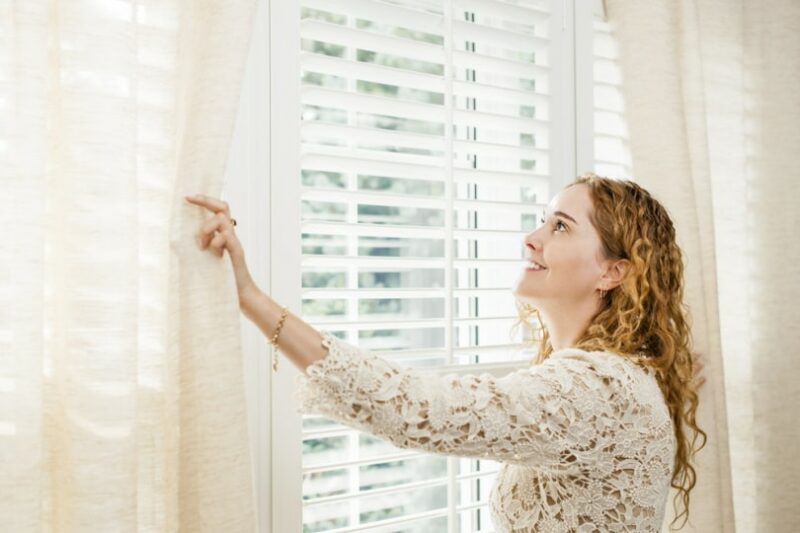
When the hot weather arrives, it is tempting to crank up your air conditioner and bask in its precious cool air, but while you cool down, your energy bill goes up. It increases your utility bill, but cranking up your AC also cranks up your carbon footprint. So, if you are eco-conscious and penny savvy but don’t adjust well to sweltering heat, you may benefit significantly from some energy-efficient tips to cool your home.
There is relief in sight as we have some great ideas for you to bring both the temperature and energy use down. Don’t let the cost of power or the heat make you sweat; these tips will help keep you cool on the hottest days.
The 12 Most Energy-Efficient Ways to Cool Down Your House
1. Choose a Fan over an Air Conditioner
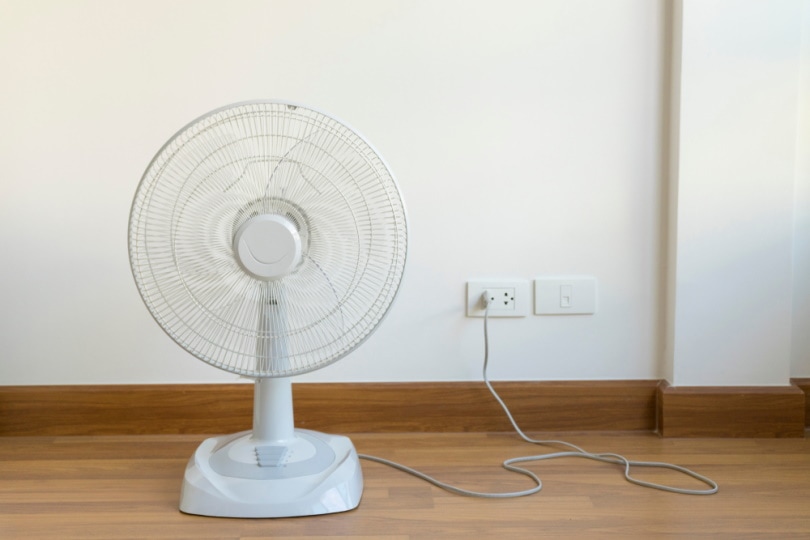
Fans are a great way to cool down a room and are much friendlier on the budget than air conditioners. You can opt for a ceiling fan or standing fan; for the extra hot days, use a desk fan that blows directly on you.
Some small fans can even work off USB connections, so if you have a charged-up power bank, you can enjoy being cool without worrying about your utility bill. Fans also circulate air, preventing it from getting stagnant and building heat. Adding ice cubes to the back can add an extra chill to cool down.
2. Leave the Air Conditioner Off at Night
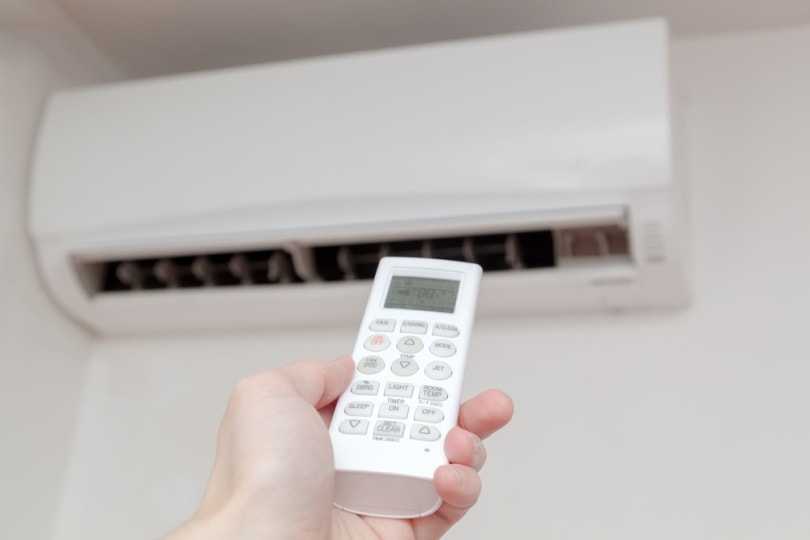
If you cannot live without your air conditioner, compromise by turning it down or off at night. As you know, air conditioners guzzle power and ramp up your utility bill. Reduce it an hour or two before going to bed, and as the temperature drops at night, open the windows and enjoy the fresh breeze blowing in.
Consider switching it on for only an hour or two before going to bed to cool the room down, and rely on the breeze from the night to cool your room down.
3. Use a Portable Air Conditioner
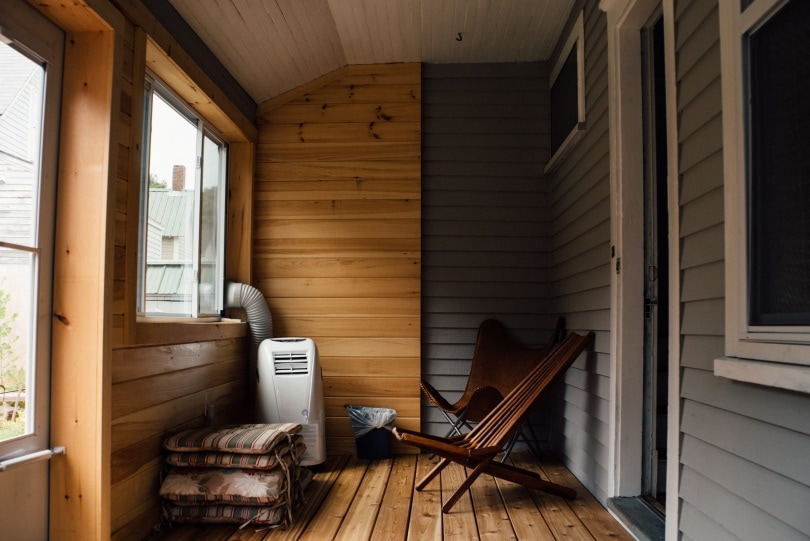
You can save money and power by not cooling down the whole house. Having a smaller unit, like a portable air conditioner, can quickly cool down a room, using at least half the amount of power. Have it cooling your living room while you wind down with a movie, and bring it into the bedroom when you are ready to start winding down for the night. Again, try not to leave it on all night. Allow the room to cool, and open up some windows.
4. Create a Breeze
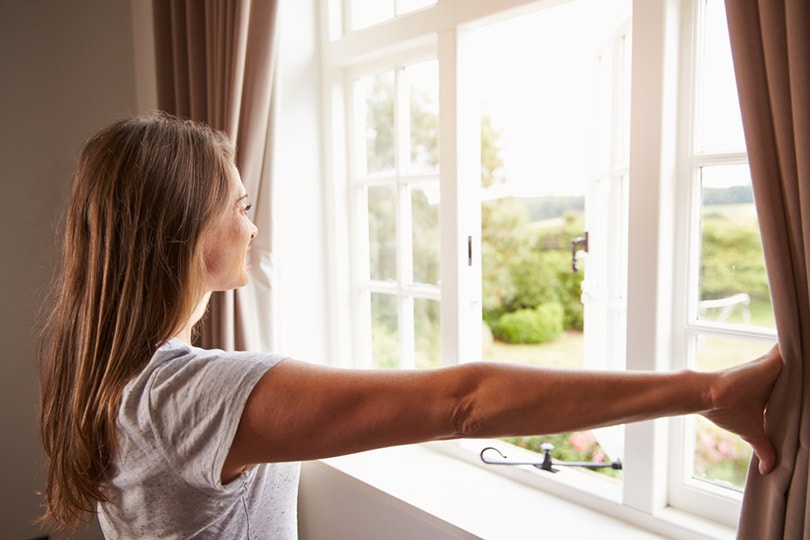
You can cool down your home efficiently by creating a cross breeze. Have the air enter through one window and exit out another. If the room only has one window, keep the door open to allow a cross breeze to form from somewhere else. You can add a fan and direct its blow toward an open window while fresh air comes in through the other window.
5. Make Use of Your Vent Fans
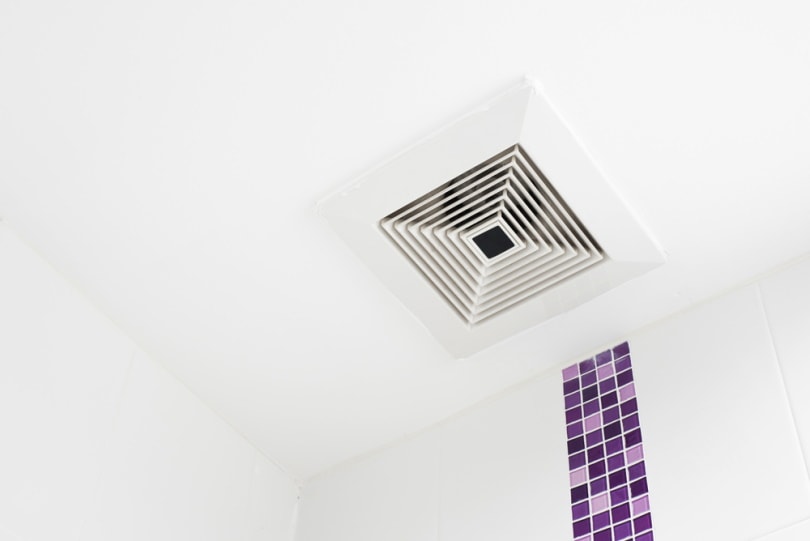
Some kitchens and bathrooms have air vents that expel hot air when cooking or having a hot shower. They can help remove heat in your home and cool it down, so think about using them when the air is feeling stagnant. It will help move the air, which will help your fan or cross breeze be more effective.
6. Keep Curtains Closed

If your curtains are left open, the sun’s rays will beam in and heat your home like a microwave. Keeping your curtains or blinds closed can help reduce the heat generated in your home and keep direct sunlight off your furniture and carpets, which will also retain the sun’s heat. Purchasing blackout curtains can also help significantly by adding an extra layer of heat prevention.
7. Switch to LED Bulbs
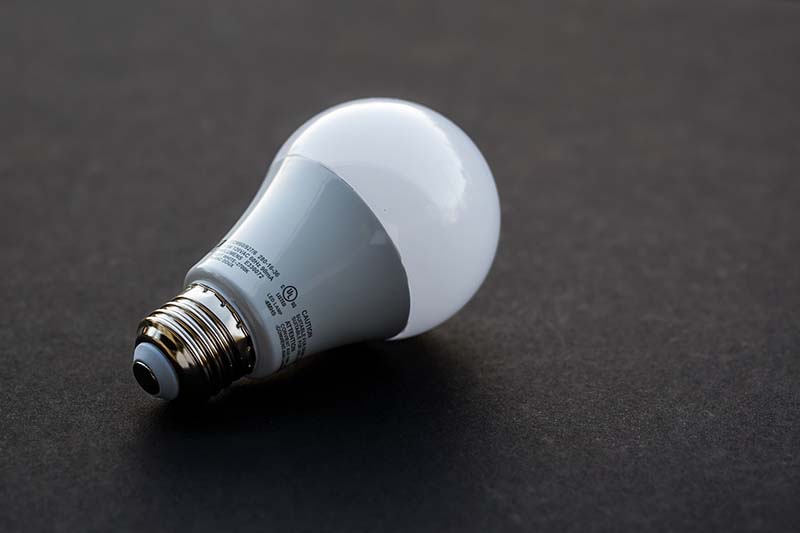
LEDs are excellent because they do not generate heat. LEDs, or light-emitting diodes, don’t need heat to make their elements light up. Heat accounts for 90%–98% of the energy emitted by incandescent bulbs, while fluorescent bulbs produce the least heat, which is 75% less and uses 75% less electricity.
While this method won’t significantly cool down your home, it can help and is a great way to reduce heat and electricity use.
8. Keep Your Room Cool with Plants
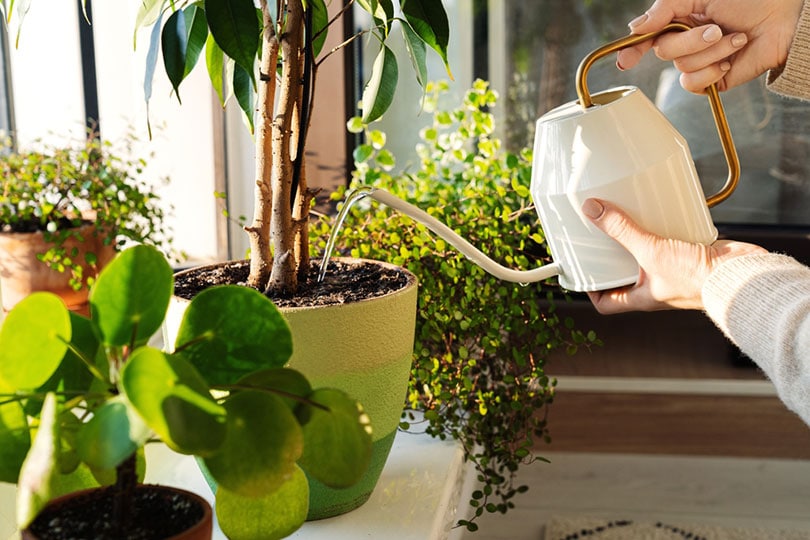
Filling your room with plants is something we are pretty sure you won’t object to. Not only are they fantastic for décor, but they can also help cool down the room! They help keep the air fresh and minimize the temperature by releasing moisture. Try to have one or more plants in each room, such as Areca palm trees, Ferns, Golden Pothos, and Snake plants.
Spraying your plants down on a hot day can help cool them down and cool your room at the same time.
9. Cook with Less Heat
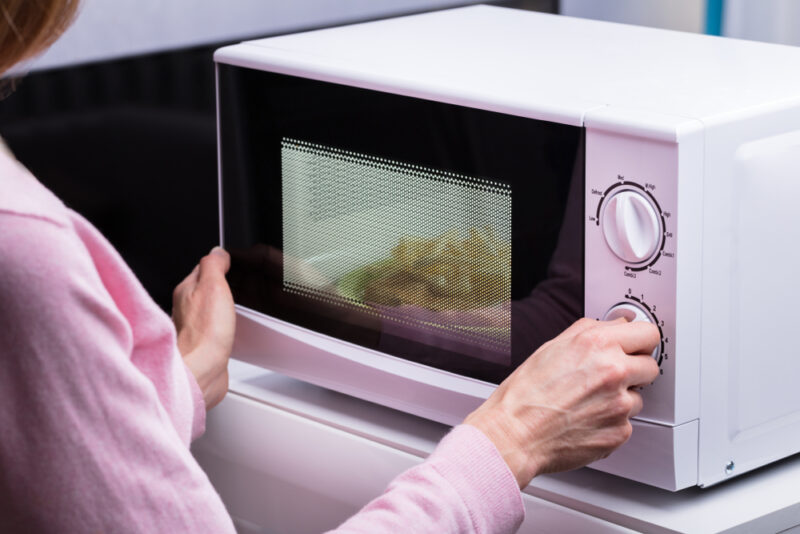
Hot evenings are a great time to enjoy salads, smoothies, cold meats, or even takeout if you feel too hot to cook. You could also use the microwave instead. Using less heat when you cook can help reduce the amount of heat that can circulate in your home. Not standing over a hot stove will also keep your body temperature down, ultimately keeping the overall temperature down.
10. Make a DIY Air Conditioner
Save power by making a simple but effective DIY air conditioner. The internet is full of great ideas that you can easily construct yourself, and if you can’t stand the heat of summer and enjoy getting crafty, it could be a fun way to keep your home cool. Generally, they involve using ice packs and fans. Let your fan blow over a cooler of ice; it will help cool things down in no time.
11. Keep Your Distance To Avoid Body Heat

If you are a part of a big family or just happen to have several guests around, something as simple as keeping space between you can help reduce the amount of heat generated. If you are too close, or there are a lot of you, your bodies will create more heat which will be released into the air.
12. Shut Down Computers and Heat Generating Appliances

Keeping computers on can generate a fair amount of heat; although they are convenient, try shutting them down when the heat is unbearable. A variety of home appliances release significant amounts of heat when operating and can raise the temperature in your home.
Appliances that emit heat are refrigerators, televisions, dishwashers, and stoves, so consider not using them or turning them off when it’s too hot inside. This will also help reduce your electricity bill.
What Is an Energy Efficient Home?
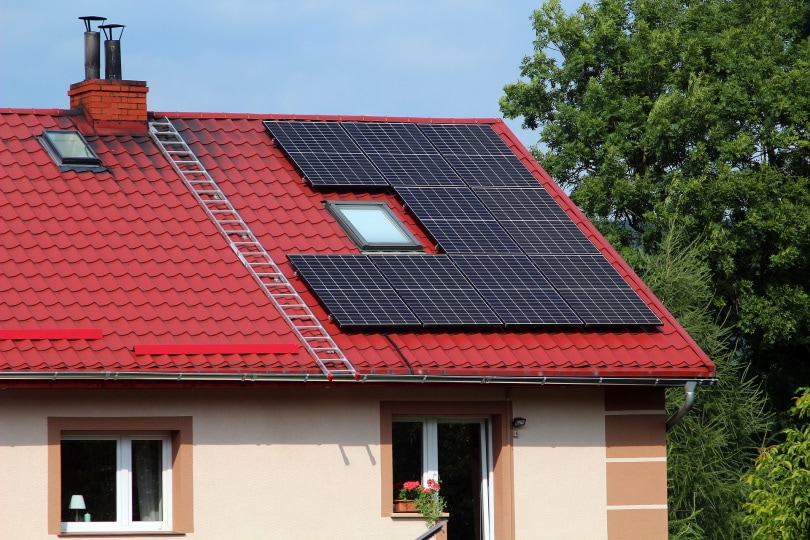
An energy-efficient home is built to use less energy while providing the comforts and necessities of a traditional home. Every little bit makes a difference, and any level of energy saving is extremely helpful since it all adds up in the long run.
If you are planning on building a home, you can choose some energy-saving options to make your home more energy sufficient. Building materials could include reclaimed wood or natural stone.
Insulating your home properly will help keep your home cool during the day, as well as keep it warm during the night. This balance in temperature means you won’t need to overwork your air conditioner.
Solar power is a fantastic and rewarding way to keep your home more energy efficient. If you can rely on only the sun’s energy for power, you will save a substantial amount of money while doing your part for the environment. The initial installation may be costly, but your savings in the long term will make it worth it.
How To Use Your Air Conditioner More Efficiently
If you cannot live without your air conditioner, or if the temperature hits too high for our tips to do the trick, here are some things you can do to use your air conditioner more efficiently.
- Move your furniture so that nothing obstructs the airflow from the air conditioner. The air will circulate quicker, so you won’t need to keep it running for too long.
- Make sure your AC is well maintained. Dirty filters will use up more energy and pump out dirty air.
- Check and repair any leaking ducts. You don’t want to waste cold air in an area that doesn’t need it.
- It may seem obvious, but make sure you turn your air conditioner off when you are not home.
- Turning it down (raising the temperature) can significantly lower your energy consumption.
- Program your thermostat to function according to your lifestyle. You can set it to change as needed, so you don’t have to constantly worry about changing it. For example, you can program it to shut off at night, turn on low in the morning, shut down when you go off to work, and come back on in the early
Conclusion
There are many ways that you can effectively keep your home cool while saving energy and money. Most of the tips we have listed for you can be used together for a more effective result. We understand that sometimes the heat is just too much for a breeze to fix, but there are ways to use your air conditioning unit to conserve energy. If you are building a new home or upgrading your current home, consider using energy-efficient materials that can save you money in the long run while reducing your carbon footprint.
Featured Image Credit: Elena Elisseeva, Shutterstock
Contents



